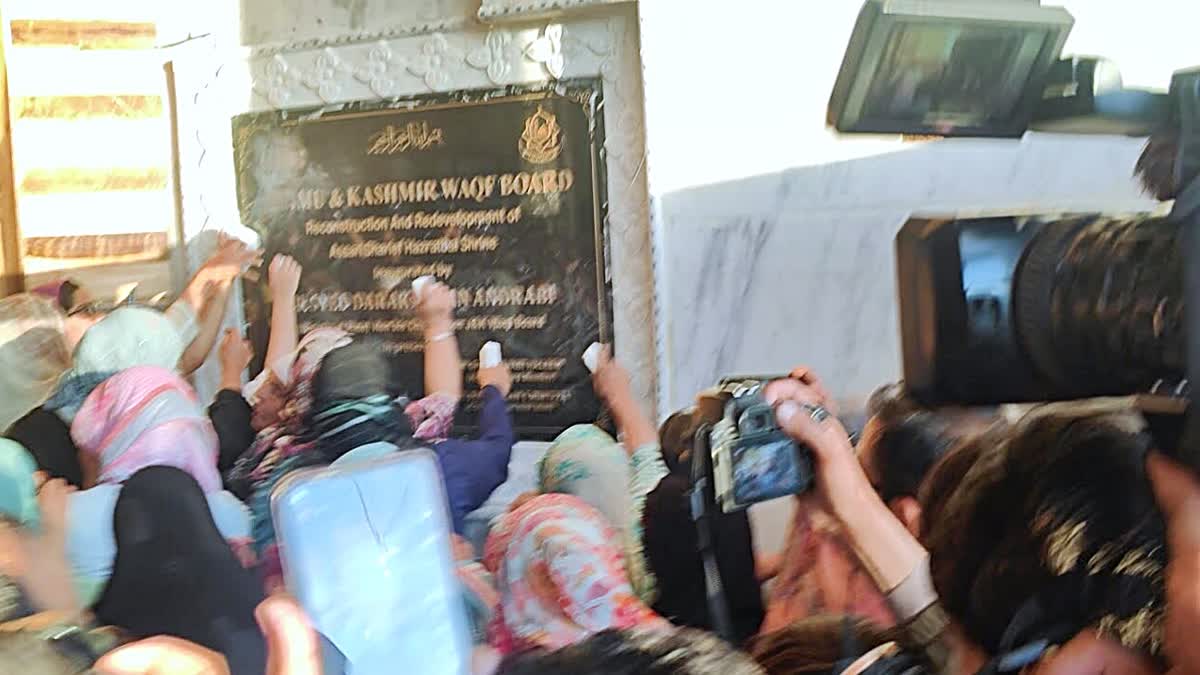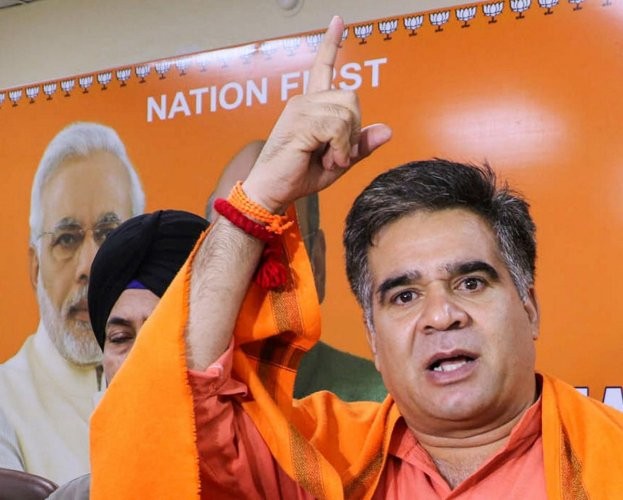A Sacred Space Under Scrutiny
By: Javid Amin | 07 September 2025
Hazratbal Shrine in Srinagar, revered for housing the holy relic of Prophet Muhammad ﷺ, is not merely a structure — it is a spiritual landmark for Kashmiri Muslims. Any alteration to its sanctity, even symbolic, resonates deeply across the Valley.
So when a plaque bearing the National Emblem (Ashoka Stambh) was installed by the J&K Waqf Board, it ignited intense religious and political backlash. Worshippers protested during Eid Milad-un-Nabi, leading to the detention of several locals — a move now drawing condemnation from major political parties.
Political Reactions: NC & PDP Join Chorus of Dissent
Farooq Abdullah: “Hazratbal is not a government monument”
National Conference president Dr. Farooq Abdullah called the decision to install the emblem at Hazratbal both unnecessary and provocative.
-
He stressed that Hazratbal is a religious institution built with public contributions, not a government-owned monument.
-
He argued that injecting state symbolism into sacred spaces risks alienating people and undermining traditions.
Ruhullah Mehdi: “Detentions unjust, people’s faith is being tested”
NC MP Aga Syed Ruhullah Mehdi voiced anguish over the detention of nearly 30 worshippers. He described the FIRs and questioning of devotees as “an affront to genuine religious sentiment”, warning that such actions deepen mistrust between the administration and the people.
Mehbooba Mufti: “Violation of Islamic principles”
PDP president Mehbooba Mufti condemned both the emblem installation and the subsequent detentions.
-
She described the use of Ashoka Stambh on a religious plaque as a clear violation of Islamic principles, where symbols and figures are forbidden inside mosques or shrines.
-
She called it an affront to faith and religious autonomy, urging authorities to withdraw the emblem immediately.
Together, the NC and PDP — rivals in many political arenas — presented a rare united front on defending the sanctity of Hazratbal.
The Core of the Controversy
The Waqf Board’s installation of the plaque set off a chain reaction:
-
Worshippers protested, some allegedly damaging the plaque.
-
Police detained over 50 individuals for questioning (though no formal arrests were confirmed).
-
The administration framed it as a law-and-order issue, while locals viewed it as state interference in faith.
Critics argue this approach failed to address the root cause: the emotional and symbolic weight of placing a national emblem in a shrine where simplicity and humility are central to Islamic tradition.
Broader Implications: Religion, State & Autonomy
The Hazratbal incident is not just about a plaque. It is a flashpoint in Kashmir’s complex relationship between religion and state authority:
-
The Muttahida Majlis-e-Ulema (MMU), led by Mirwaiz Umar Farooq, called for the immediate removal of the plaque and demanded that religious scholars be consulted before any future changes to shrines.
-
For many, the plaque symbolized a blurring of sacred and secular spaces, raising concerns of state overreach into religious autonomy.
-
The political dimension is equally critical — NC and PDP framing the controversy as evidence of mismanagement by the Waqf Board and the administration.
Voices from the Ground
-
“We went to pray, not to protest. But when we saw the plaque, it felt like a violation of our sacred space.” — Local worshipper, Srinagar
-
“Instead of listening to people’s concerns, they detained us. Is this how faith is to be handled?” — Detained devotee’s relative
-
“The shrine belongs to the people and their faith, not to symbols of power.” — Local cleric
These voices highlight a gap of trust between authorities and the faithful, one that political leaders are now amplifying.
The Way Forward: Dialogue Over Detentions
The Hazratbal incident shows the fragility of trust when faith, politics, and governance intersect.
Experts and religious leaders argue that the way forward lies in:
-
Immediate removal of the plaque to restore sanctity.
-
Ending punitive action against worshippers.
-
Institutional consultation — involving clerics, scholars, and community stakeholders in shrine-related decisions.
-
Balancing respect for national identity with respect for religious autonomy.
Conclusion: Hazratbal as a Symbolic Test
The Hazratbal plaque controversy has transformed from a local issue into a symbolic test of respect, governance, and restraint.
For the NC and PDP, it is an opportunity to reclaim political space by aligning with public sentiment. For the Waqf Board and administration, it is a lesson in humility and consultation.
At its heart, the controversy reinforces a simple truth: faith cannot be managed by force or symbolism — it must be nurtured with respect.
Hazratbal Shrine in Srinagar, revered for housing the holy relic of Prophet Muhammad ﷺ, is not merely a structure — it is a spiritual landmark for Kashmiri Muslims. Any alteration to its sanctity, even symbolic, resonates deeply across the Valley.
So when a plaque bearing the National Emblem (Ashoka Stambh) was installed by the J&K Waqf Board, it ignited intense religious and political backlash. Worshippers protested during Eid Milad-un-Nabi, leading to the detention of several locals — a move now drawing condemnation from major political parties.



